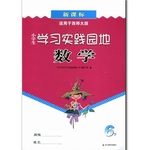题目内容
第二节 (共5小题;每小题2分,满分10分)
根据短文内容,从短文后的选项中选出能填入空白处的最佳选项。选项中有两项为多余选项。
Everyone knows that the Frenchmen are romantic, the Italians are fashionable and the Germans are serious. Are these just stereotypes or is there really such a thing as national character? And if there is, can it affect how a nation succeed or fail?
At least one group of people is certain that it can. A recent survey of the top 500 entrepreneurs (企业家) in the UK found that 70% felt that their efforts were not appreciated by the British public. Britain is hostile (敌意的) to success, they said. It has a culture of jealousy(嫉妒). 71 Jealousy is sometimes known as the “green – eyed monster” and the UK is its home.
Scientists at Warwich University in the UK recently tested this idea. They gathered a group of people together and gave each an imaginary amount of money. 72 Those given a little were given the chance to destroy the large amount of money given to others – but at the cost of losing their own. Two thirds of the people tested agreed to do this.
73 But there is also opposite evidence. The Organization for Economic Cooperation and Development recently reported that the UK is now the world’s fourth largest economy. That is not bad for people who are supposed to hate success. People in the UK also work longer hours than anyone else in Europe. So the British people are not lazy, either.
“It is not really success that the British dislike,” says Carey Cooper, a professor of management at the University of Manchester Institute of Science and Technology. “It’s people using their success in a way that seems proud or unfair or which separates them from their roots.”
74 They set out to do things in their way. They work long hours. By their own efforts they become millionaires. 75 It hardly seems worth following their example. If they were more friendly, people would like them more. And more people want to be like them.
A. This seems to prove that the entrepreneurs were right to complain.
B. The one who owns most money in the end is the winner.
C. As a result, the survey said, entrepreneurs were “unloved, unwanted and misunderstood.”
D. It is not true that British people are born jealous of others` success.
E. Some were given a little, others a great deal.
F. But instead of being happy they complain that nobody loves them.
G.. Perhaps it is the entrepreneurs who are the problem.
71—75CEAGF
【解析】

 仁爱英语同步练习册系列答案
仁爱英语同步练习册系列答案 学习实践园地系列答案
学习实践园地系列答案第二节(共5小题;每小题2分,满分10分)
根据短文内容,从短文后的选项中选出能填入空白处的最佳选项。选项中有两项为多余选项。
What is your favorite color? Do you like yellow, orange, and red?___71___ Do you prefer grays and blues? Then you are probably quiet, shy, and you would rather follow than lead. You tend to be a pessimist(悲观者). At least, this is what psychologists tell us, and they should know, because they have been seriously studying the meaning of colors preference, as well as the effect that colors have on human beings. ___72___If you happen to love brown, you did so, as soon as you opened your eyes, or at least as soon as you could see clearly.
___73___A yellow room makes most people feel more cheerful and more relaxed than a dark green one; and a red dress brings warmth and cheer to the saddest winter day.___74___ A black bridge over the Thames River, near London, used to be the scene of more suicides than any other bridge in the area ---until it was repainted green. The number of suicide attempts immediately fell sharply; perhaps it would have fallen even more if the bridge had been done in pink or baby blue.
___75___It is an established fact that factory workers work better, harder, and have fewer accidents when their machines are painted orange rather than black or grey.
|
A.On the other hand, black is depressing. |
|
B.They tells us that we do not choose our favorite color as we grow up——we are born with our preference. |
|
C.The rooms are painted in different colours as you like. |
|
D.If you do, you must be an optimist(乐观者), a leader, an active person who enjoys life, people and excitement. |
E. Light and bright colors make people not only happier but more active.
F. Life is like a picture or a poem, full of different colours.
G. Colors do influence our moods——there is no doubt about it .
第二节(共5小题;每小题2分,满分10分)
根据短文内容,从短文后的选项中选出能填入空白处的最佳选项。选项中有两项为多余选项。
I was in Tokyo last spring, walking in the street and talking with my dear friend Kirsten. 71 It turned out to be a group of four very hip Japanese college students playing their music instruments for anyone who would listen.
72 In the middle of the second song, an old homeless man broke through the crowd and started shouting at the band. The musicians did their best to ignore him but the man would not go away. It seemed he was angry about the loud noise.
I remember there were probably two dozen people watching this. 73 I was also helpless because first, I couldn’t speak much Japanese, and second, the homeless man was starting to get more and more violent. At one point, he picked up a stick and started banging on the drum set.
This was more than the young drummer could take. He stopped playing, stood up and pushed the old man to the ground.
74 He knelt down next to the old man, took hold of his hands and asked him if he was alright. I couldn’t understand what was being said, but I will never forget the way this young man helped bring the fallen man to his feet. And I will never forget the way he carefully placed his arm around the old man’s shoulders and quietly walked him away.
75 Maybe this old man was a prince in disguise. And maybe he was waiting to see someone act, just once, with beauty and courage.
|
A.I couldn’t help but wonder. |
|
B.All of them went away at once. |
|
C.Suddenly, we heard the sound of a jazz band. |
|
D.Everybody became angry with the old man. |
E.But no one knew what they could or should do.
F.However, not everyone was enjoying the music.
G.At that time, a young Japanese man went through the crowd quietly.